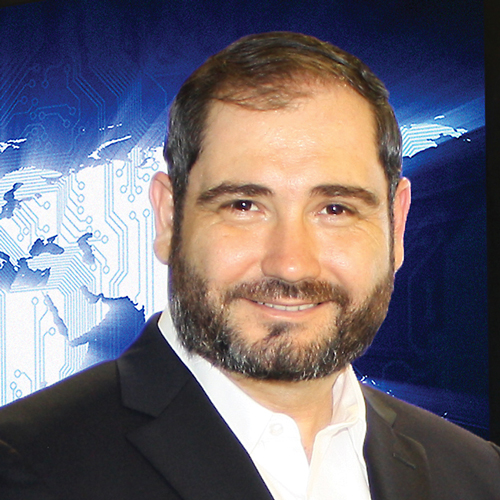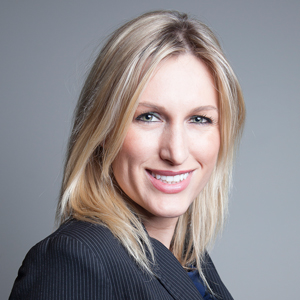Born in Colombia, Rafael Diaz-Granados moved to Miami as a teen, and has been moving, around and ahead, ever since. After graduating from Harvard and receiving a degree in international law from Georgetown, Diaz-Granados joined the international corporate group of a New York City law firm—O’Melveny & Meyers LLP.
Though the experience was invaluable, he wanted a job with more family-friendly hours. GE presented that opportunity in 2000. After beginning as strategic alliances counsel for GE’s healthcare business, Diaz-Granados headed the GE Healthcare Six Sigma Center of Excellence, was named general counsel for GE Latin America, based in Mexico City; became president and CEO of GE Mexico; and then president and CEO of GE Spain and Portugal, based in Madrid.
“When the global financial crisis hit, I had to convince the team in Spain to make changes. For example, every employee got a Christmas basket. It was a big expense, and we needed to cut costs,” he recalls. “Spanish labor law said the unions didn’t have to give in, but I helped them see that this was the right thing to do. As a leader, you have to be present when times are tough—not send someone else to have the difficult conversation.”
His next moves were to Brazil, where he was chief commercial officer for GE Latin America in 2011, and then back to Milwaukee, where he became simplification leader of GE Healthcare. “We looked at what was working and what wasn’t. And we focused on making it easier for customers to do business with us.”
When Diaz-Granados was offered a job for GE in Paris at the end of 2014, he reflected on his family and career and decided five countries in six years was too much. He left GE on good terms in December. “I started a small private equity advisory firm in Miami. And I’ve been spending a lot more time with my family.” While he loves the flexibility of his current lifestyle, he thinks he’ll eventually head back to the Fortune 500. “A big company under the right leadership can have a hugely beneficial impact on the world.”
One of Diaz-Granados’s proudest accomplishments from his time at GE was reopening operations in Colombia. “It was considered too dangerous for us to operate there,” he says. “I had to build a convincing business case and a security case. We now have a multi-hundred-million dollar business there.”
The ability to navigate cultures is essential when working for a global company. “When I was general counsel in Mexico,” he recalls, “there were complaints about the aggressive behavior of one manager. He had just moved from Spain—where business executives are more aggressive—and used expressions that would be considered pejorative elsewhere. I explained the whole context to the team, then told the man he’d have to learn the Mexican business culture. He did—and became a valuable member of the team. Another time, I was visiting my team in Beijing. Over lunch, I mentioned that one of the team members had done a poor presentation. After lunch, I was told the problem had been taken care of—he’d been fired.”
“That was not my intent at all—he needed help with his presentation skills. I learned the importance of making sure you’re communicating what you think you’re communicating.” The man got his job back.
Helping bring more Hispanics into the executive ranks has long been a priority for Diaz-Granados, who has served as both sponsor and mentor to numerous Latinos and was chairman of the CEF Legacy Advisory Council for the Hispanic Association for Corporate Responsibility (HACR). He has also been active with Junior Achievement programs in various countries.
“Milwaukee has a Hispanic population that is larger than you might expect. We would do a big Junior Achievement Day with GE—200 volunteers would go into seven or eight schools and talk about business, jobs, and the economy in a combination of Spanish and English. We wanted to inspire and prepare students to succeed in the global economy.”
Diaz-Granados says the most important influence in his life is his wife, Sonja. “In Colombia, cutting in line is no big deal. But she did not approve of that. From her I learned the importance of not taking shortcuts.”
“Every time we’d move, she did the heavy lifting,” he continues. “I’d start working, but she’d find the new home, the new school, the new pediatrician. I could never have had this career without her.”

